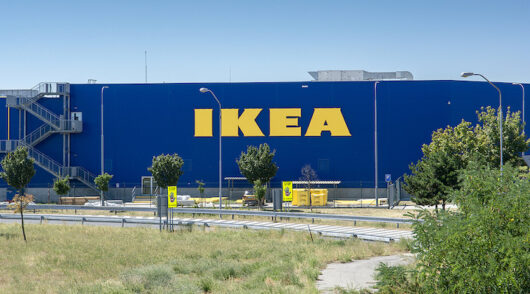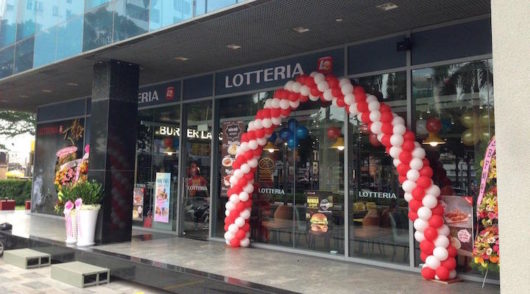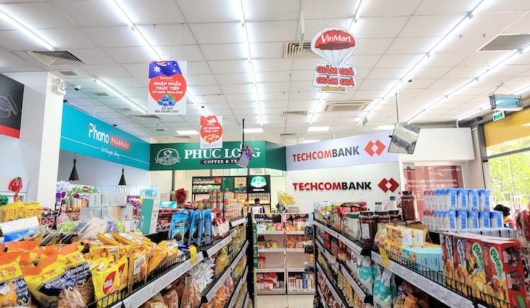Tiffany & Co believes its decision to focus heavily on the Chinese market will play a big part in the company’s recovery from the impact of the Covid-19 pandemic which has caused sales to plummet and a rare quarterly loss.
Tiffany’s worldwide sales plunged 45 per cent in the April quarter as the Covid-19 crisis forced store closures in every market.
The result was an operating loss of US$105 million on sales of just $556 million in the April quarter, compared with a profit of $161 million on sales of $1 billion in the same period a year ago.
As the company faces uncertainty over the future of French luxury group LVMH’s $16.2 billion takeover bid, Tiffany CEO Alessandro Bogliolo had to portray a positive spin in the context of a global pandemic which has devastated the luxury market globally in the first half of this year. And that he did.
“While the first quarter was very challenging with sales and earnings significantly impacted by Covid-19, the impact of which we expect to negatively affect our full-year sales and earnings relative to 2019, I am confident Tiffany’s best days remain in front of us because there is evidence that the strategic decisions we took to focus on our Mainland China domestic business, global e-commerce, and new product innovation are paying off – even against the backdrop of a global pandemic,” he said in a results statement.
While sales in key markets like the US and Japan were down significantly during the first quarter, Tiffany’s business performance in Mainland China, indicates a “robust recovery” is underway.
Sales in Mainland China were down about 85 per cent year on year in February and 15 per cent in March, before rising by about 30 per cent in April. But in May, the first month of the new quarter, Mainland China sales were up by 90 per cent, despite global net sales falling 40 per cent.
“This evidence not only leads us to believe that our global net sales will significantly improve over the balance of the fiscal year relative to our year-to-date performance, but also confirms that our decision to invest heavily in growing our domestic business in Mainland China was particularly prudent and well-timed, given the recent sharp decline in Chinese tourism abroad and the increase in local consumption.
“We are confident that Tiffany is now well positioned to benefit in the years ahead in this important market,” said Bogliolo.
However, Neil Saunders, MD of GlobalData Retail, is not quite so convinced that Tiffany’s China experience is directly applicable to its prospects in other markets.
“For one thing, China was already a fast-growing market. Although an uplift of 90 per cent is very robust, it needs to be put in context of the double-digit growth that Tiffany was generating in the country before the crisis hit. Much of this is down to rising affluence in China which is driving a lot of spending on higher-end products, a trend that is simply not replicated in the more mature economies of the West. Another factor is the recent enablement of e-commerce in China which has boosted sales and flattered growth. This dynamic is not beneficial to other regions where Tiffany has long allowed online transactions.”
Bogliolo also cited the jeweller’s new Tiffany T1 collection of rose-gold and gold-with-diamonds pieces as cause for optimism, saying it got “off to a tremendous start with cumulative sales through the end of May matching our original projections despite a significant number of our stores being closed around the world”.
Takeover speculation
Referencing the LVMH takeover bid, Bogliolo expressed confidence that Tiffany’s best days remain ahead of us “and I am excited we will be taking that journey with LVMH by our side”.
While there has been speculation that LVMH may try to pull out of the deal given the serious decline in the retail industry globally, analysts appear confident it will proceed.
The LVMH board met in Paris a week ago and announced soon afterwards that it would not acquire shares on the stock market where they are currently trading at a rate less than the price offered in the takeover bid.
Saunders said the acquisition “looks to be on track, at least from a regulatory perspective,” and he believes LVMH will likely try to secure a better price rather than giving up the prize of Tiffany entirely.
Bogliolo said regulatory clearance for the deal has been received in Russia and Mexico as the company proceeds to gain antitrust approvals in the international markets in which they operate.
Asian performance
In the broader Asia-Pacific region, Tiffany’s first-quarter net sales declined 46 per cent to $174 million and comparable sales declined 45 per cent, due to Covid-19-related store closures in China from February and other Asia-Pacific countries in March and April. Stores began to re-open in Mainland China at the end of February and as at April 30, some 85 per cent of the company’s retail stores across the region were fully or partially trading.
In Japan, net sales declined 40 per cent to $86 million and comparable sales declined 41 per cent. Store closures there began in early April, and a decline in tourist traffic persisted throughout the quarter. As of April 30, just 5 per cent of the company’s stores there had reopened.
Tiffany ended the quarter with 324 stores worldwide, including 90 in Asia Pacific and 58 in Japan.
Saunders says Tiffany’s strong balance sheet will help it weather than Covid-19 impact, with $1.1 billion in liquidity, despite a $500 million drawdown on a revolving credit facility to help fund operations in the absence of sales.
In closing, Bogliolo commented: “The character and strength of Tiffany & Co have been tested many times over the past 183 years and, because of its exceptionally talented and devoted employees, the company has always been able to persevere and succeed.”
This crisis should be no different.






